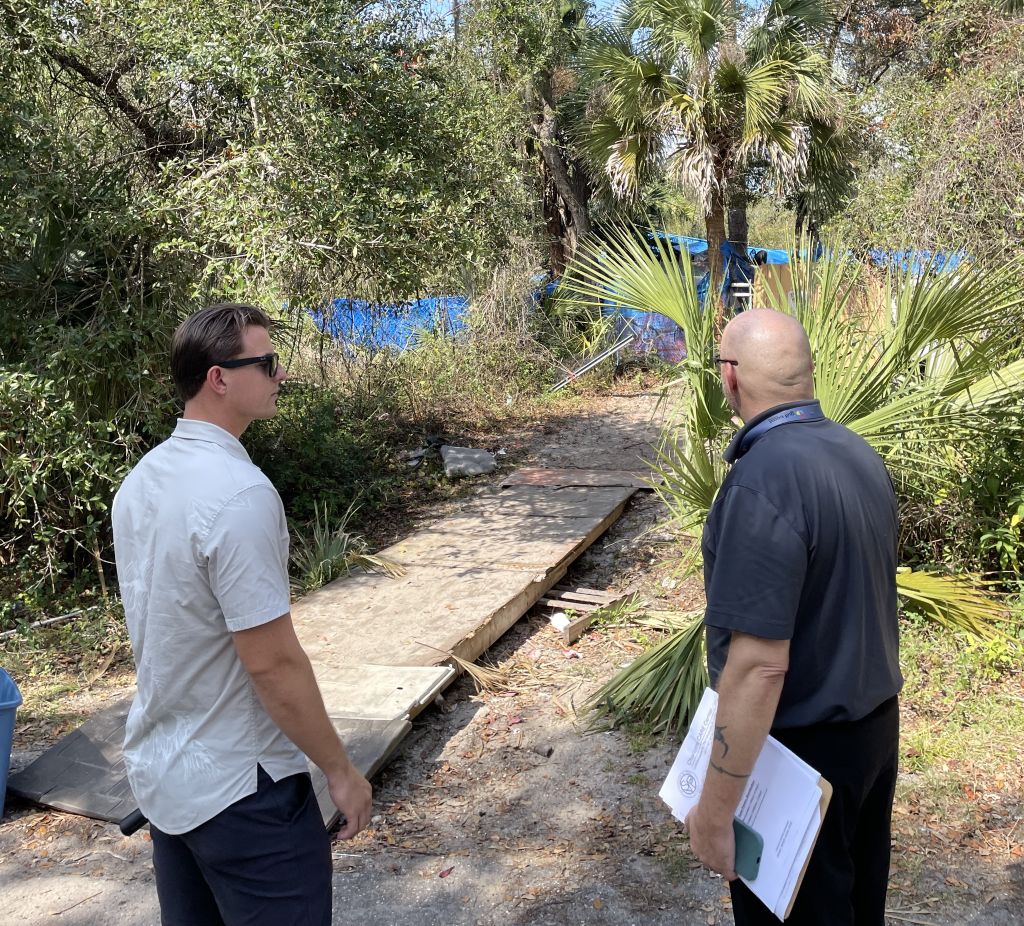How Partnership Created Pathways Home
By Kelly Hunter
For more than a decade, a vast stretch of land near the Charlotte County Fairgrounds stood as a dream deferred. Originally slated to become a family-friendly waterpark called Lost Lagoon, the project never materialized. Instead, the 1,100-acre property evolved into something entirely different: a hidden community of unsheltered individuals.
Amid the tall pines, palms, and dense palmetto overgrowth, 77 people across more than 70 camps called Lost Lagoon home. Residents carved out footpaths, built makeshift compounds, and found ways to survive in an environment never meant for long-term living. Their creativity and determination were evident, yet behind that resilience were some of life’s heaviest burdens—mental illness, addiction, trauma, and the weight of lost opportunity.
“There are some really intelligent people out there,” Deputy Louis “Lou” Henyecz of the Charlotte County Sheriff’s Office reflected. “Veterans, teachers, even professionals who once thrived but fell on hard times. The difference comes when people are given an opportunity. That’s when lives turn around.”
These were capable people whose potential was overshadowed by challenges too great to face alone. And that reality presented Charlotte County with a difficult question: how could a community respond in a way that upheld both public safety and humanworth?
A Challenge for the Community
Deputies Henyecz and William Miller had patrolled the Lost Lagoon area for more than a decade. They witnessed resilience, but they also saw cycles of hardship repeating themselves. It became clear that a new approach was needed—one that went beyond law enforcement alone.
Creating lasting change required a county-wide partnership that combined accountability with compassion.
Building the Right Team
That partnership came together in force and in phases. Among those involved were the Gulf Coast Partnership (GCP), St. Vincent de Paul CARES and its CARE Center shelter, Jesus Loves You Ministry (JLYM), Jewish Family and Children’s Services (JFCS), Charlotte Behavioral Health Care (CBHC), and the Charlotte County Sheriff’s Office (CCSO) aligned around a single mission: to move people out of homelessness and into homes.
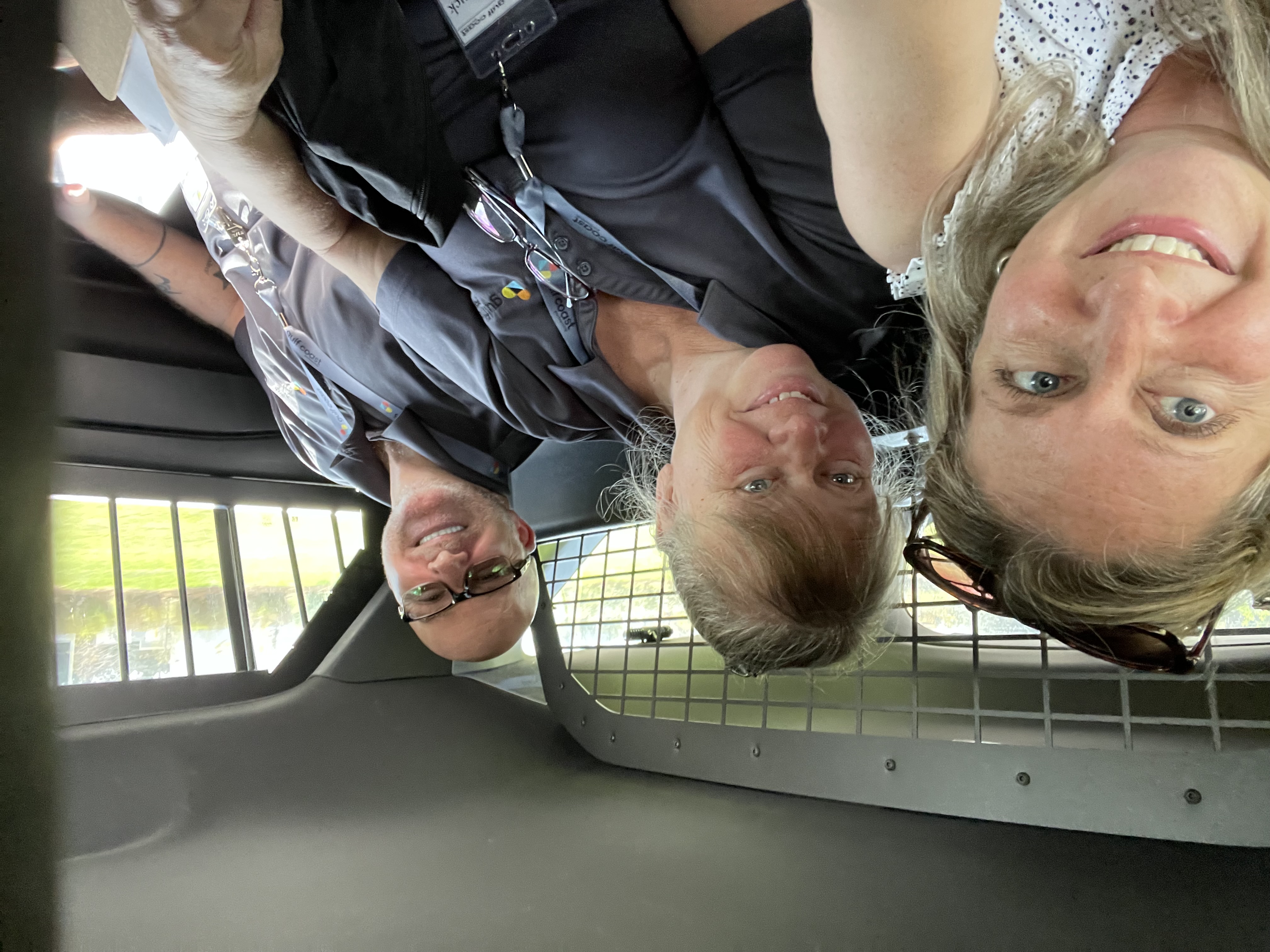
This was not easy, nor did it happen overnight. But persistence paid off.
Penny Lerie, GCP’s Special Populations Intake and Outreach Coordinator, played a key role, working closely with Panther Management to secure all-inclusive rental packages at $900 per month. These newly built homes opened doors for individuals who might otherwise be excluded due to criminal records, addiction histories, or mental illness. Just as importantly, the approach respected client choice: where they wanted to live, who they wanted to live with, and what they could realistically afford—empowering them to take ownership of their futures.
“It isn’t just about placing people in a home,” Lerie explained. “It’s about respecting their voice. When people have a say in their future, stability follows.”
Meeting People Where They Are
This work was anything but a walk in the park. Staff from Gulf Coast Partnership, St. Vincent de Paul CARES, Jesus Loves You Ministry, and the One Charlotte Integrated Care Team (a partnership between GCP and CBHC -- funded by SAMHSA) walked miles through thick woods in the sweltering summer heat, bringing case management, therapy, recovery referrals, and peer support directly to the camps.
“You don’t wait for people to come to you,” said Deputy Henyecz. “We went to them, in their environment, and that made all the difference.”
Through persistence and consistency, trust was built—even in the most difficult circumstances. Once trust was established, progress followed.
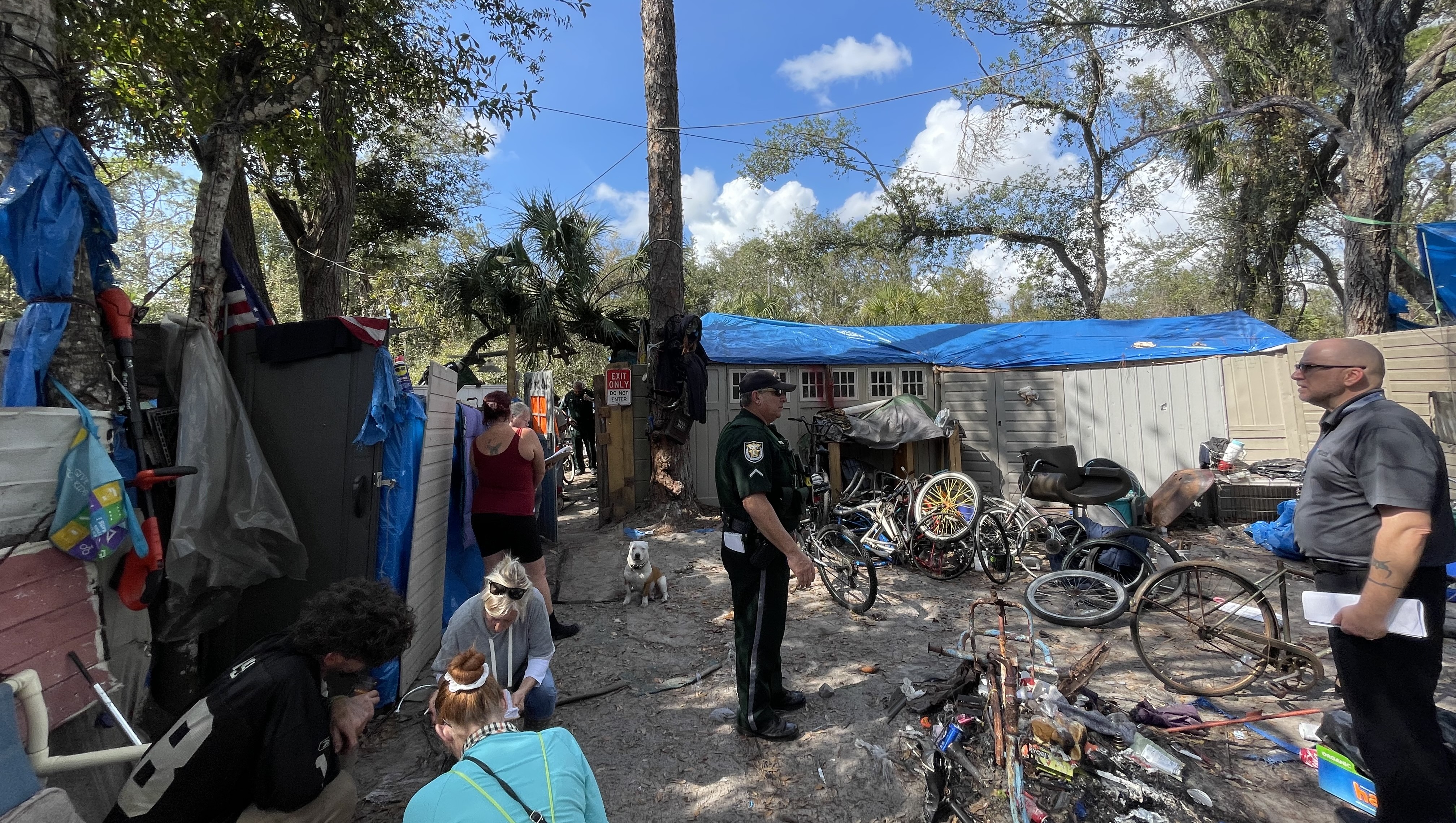
Results That Matter
What came next was transformation—lives changed, land restored, and barriers broken down:
- 58 of 77 people housed since June 2025
- Several others relocated and reunited with family/friends
- All linked to or offered essential services and resources
- 70 encampments cleared
- 221 tons of debris removed (442,880 lbs.)
- $100,000+ cleanup costs saved for property owners
Former residents are now rebuilding their lives—working jobs, reconnecting with family, and living in safe, stable housing. At the same time, Charlotte County reclaimed land once considered blighted.
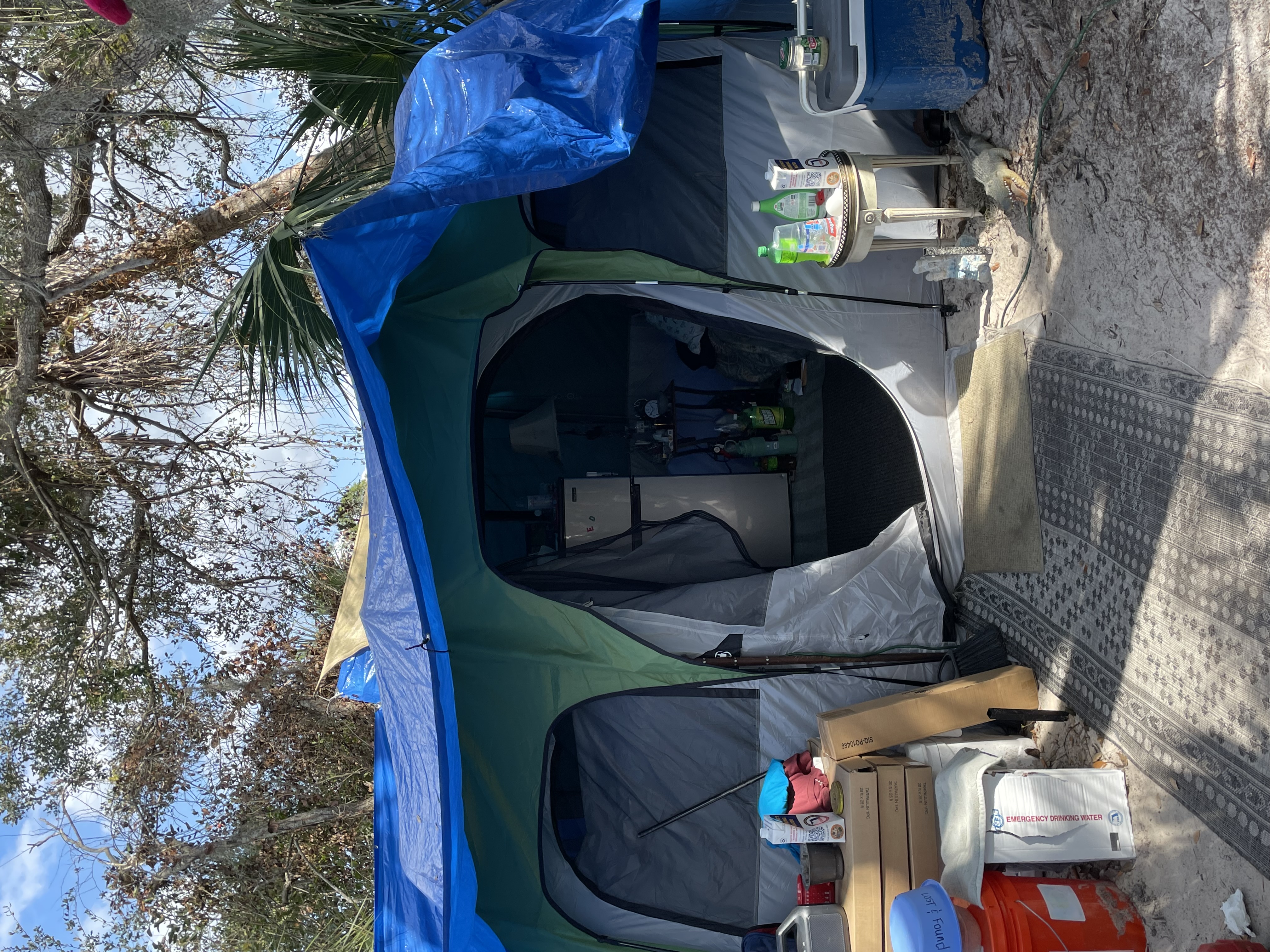
Operation Lost Lagoon: The Cleanup
Housing wasn’t the only success story. The physical transformation was equally dramatic and couldn’t have been accomplished if not for collaboration and partnerships.
Over several weeks in June and July 2025, a massive cleanup effort brought together Keep Charlotte Beautiful, Charlotte County Solid Waste, CCSO, Charlotte County Public Works, and the Florida Department of Corrections (whose inmate crews worked tirelessly in the heat). Together, they cleared 50 sites, dismantled 70 camps, and hauled away more than 1,011 cubic yards of debris.
“This was a record amount for any clean-up I’ve organized,” one coordinator shared. “The inmate crews often picked up debris by hand. The results were incredible—restoring a natural, park-like setting.”
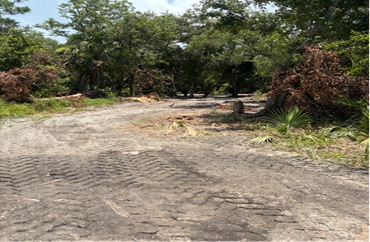
A Model for the Nation
The collaborative nature of partnerships like these has drawn national attention. On October 1, 2025, the National Alliance to End Homelessness will feature Charlotte County’s model in a national panel discussion. Gulf Coast Partnership’s Director of Coordinated Services, Chris Oester, will share how persistence, trust, and innovation produced results many communities have struggled to achieve.
Deputy Henyecz summarized it plainly:
“The end goal isn’t moving someone from place to place every time there’s a complaint. The goal is housing and self-sufficiency, treating people with respect, and helping them become productive members of society. When that happens, it’s a win for everyone.”
Looking Ahead
The transformation of Lost Lagoon is more than a story about clearing camps or removing debris—it is proof of what’s possible when law enforcement, service providers, nonprofits, and neighbors work side by side. Collaboration breaks down barriers once thought insurmountable and replaces them with pathways to stability, opportunity, and renewal.
Through collaboration and partnership, lives once lived in the shadows now carry the promise of belonging, self-sufficiency, and respect. The success at Lost Lagoon shows us that when we stand together—each bringing our strengths, resources, and commitment—we don’t just solve problems; we strengthen the very fabric of our community. And with every partnership forged, we move closer to a Charlotte County where opportunity is shared by all.
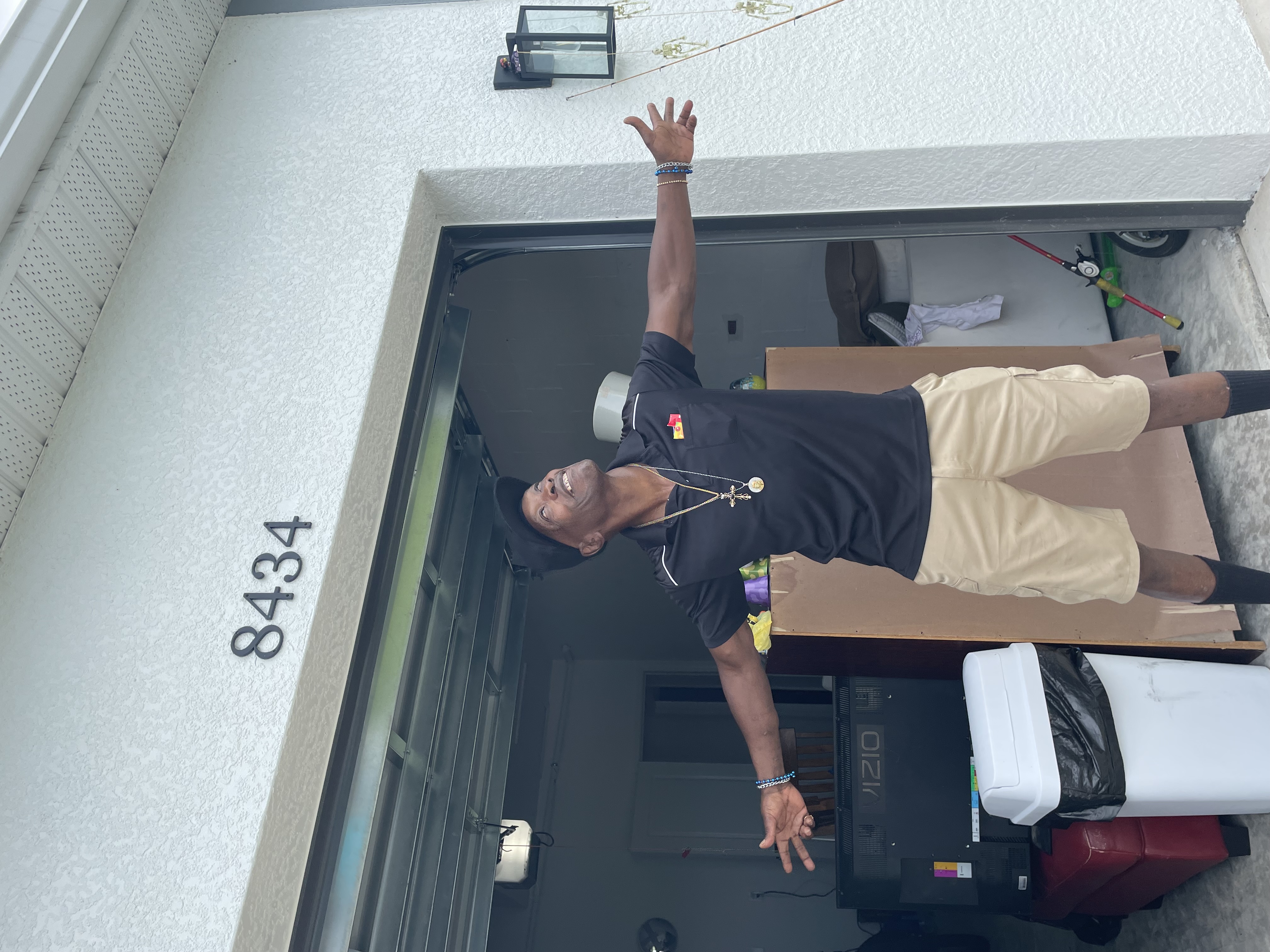
Together We Can!

